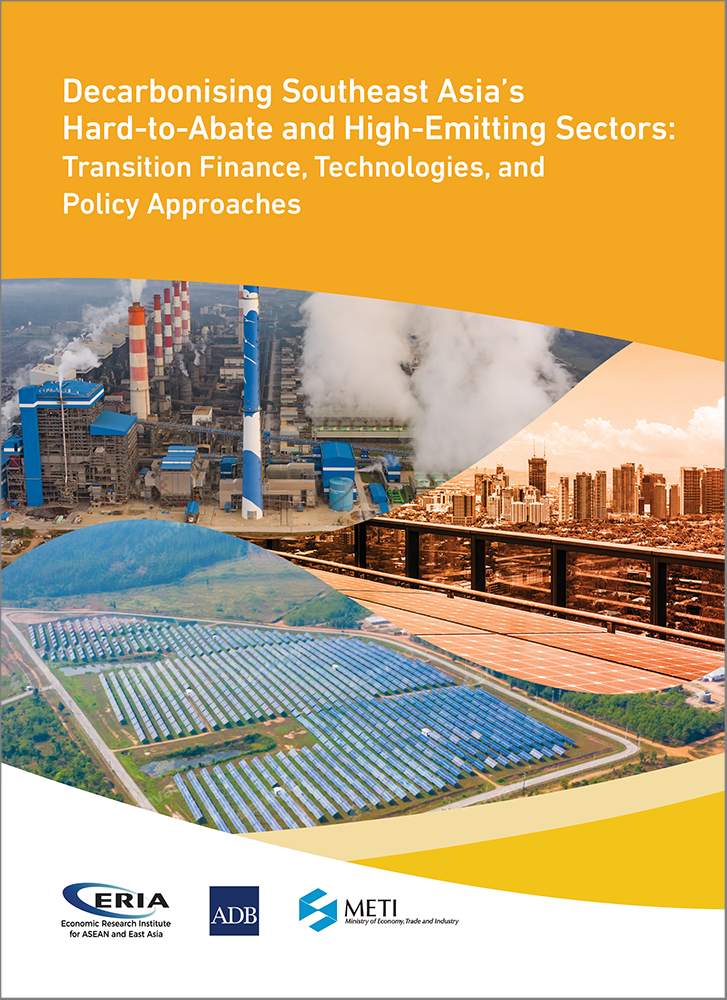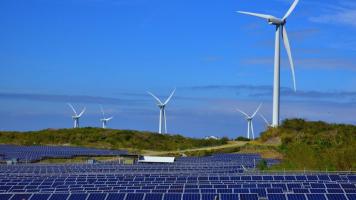Decarbonising ASEAN's Hard to Abate and High Emitting Sectors: Transition Finance, Technologies, and Policy Approaches
 Download (11.36 MB)
Download (11.36 MB)
Publication Type:
Publisher:
ERIA (Economic Research Institute for ASEAN and East Asia) , Asian Development Bank (ADB)
Publication:
October 2025
The joint report by ERIA, ADB, and METI examines the current landscape, identifies challenges, and highlights emerging practices for mobilizing transition finance within the region's unique energy, financial, and industrial contexts.
As countries in the region pursue their net-zero targets, financing credible and inclusive transition pathways has become increasingly urgent in these sectors. The study reviews the current landscape, identifies challenges, and highlights emerging practices for mobilizing transition finance within Southeast Asia’s unique energy, financial, and industrial contexts. It also assesses transition activities and enablers such as sustainability-linked instruments, blended finance, and policy support. The report showcases in-depth case studies across Southeast Asian countries that illustrate real-world experiences, covering both green and transition-aligned technologies in scaling-up renewables, building green-enabling infrastructure, and decarbonizing hard-to-abate and high-emitting assets.
The report calls for strong regional cooperation amongst policymakers, financial institutions, industry actors, and other stakeholders to ensure a just and credible transition towards low-carbon economies in Southeast Asia. It places strong emphasis on first-of-a-kind projects in sectors without commercial precedents, supported by governments in the region, developed-country trade partners, and multilateral development banks. Regional initiatives such as the Asia Zero Emission Community (AZEC) are highlighted as crucial platforms to harmonize technical standards, align policy frameworks, support infrastructure planning, and crowd in financing.
Finally, the report proposes the establishment of regional standards and financing mechanisms for early-stage industrial decarbonization, designed to channel concessional capital, catalyze blended finance, and facilitate cross-border investments to address the energy trilemma and support a just energy transition.
